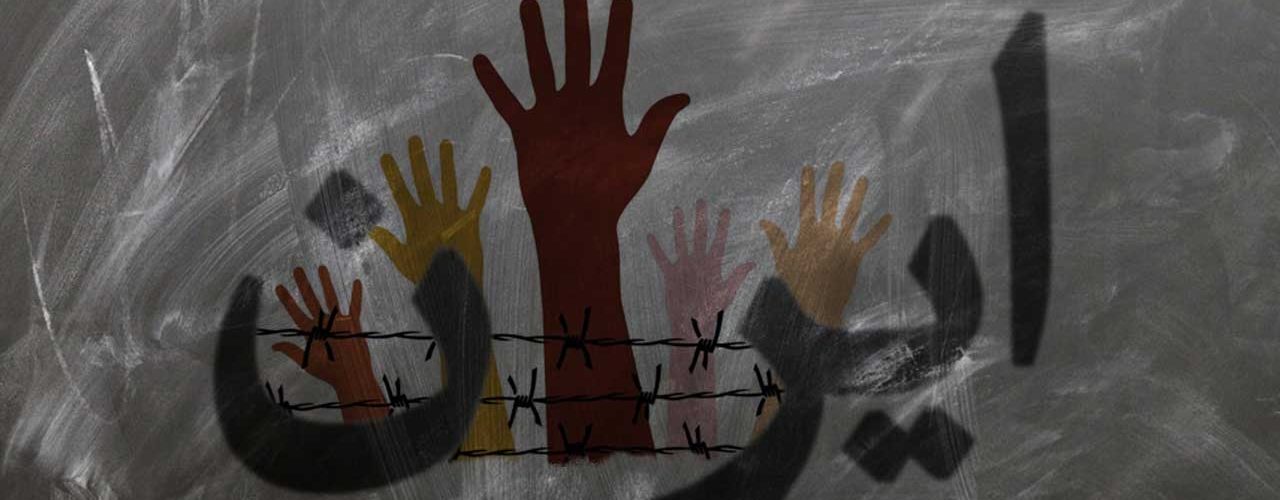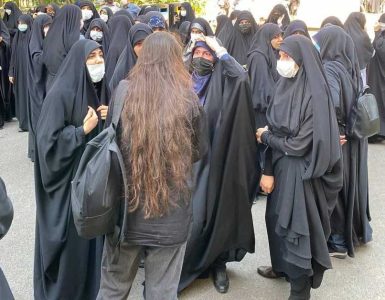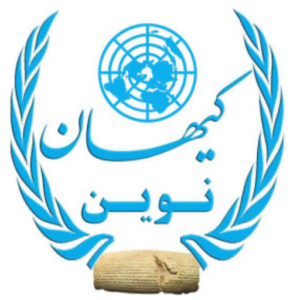در حقوق بینالملل و به ویژه در حقوق بشر بینالمللی، مفهوم «تعهدات جهانی»[۱] و یا به زبان بهتر و روشنتر «تعهداتی نسبت به همه جهانیان»، به منزله یک وظیفه اجتنابناپذیر برای همه کشورها نسبت به حفاظت از منافع جامعه بینالمللی به شمار میرود.
In international law and especially in international human rights, the concept of “global obligations” [1] or in a better and clearer language “obligations towards all the worlds”, is an inevitable duty for all countries to protect the interests of the international community. is counted
با وجود روشنی و وضوح اهمیت «تعهدات جهانی» کشورها در قبال منافع جامعه بینالمللی، جمهوری اسلامی ایران همواره چنین تعهداتی را نادیده گرفته است. در زمینه حقوق بشر، این قصور (عالمانه و یا نادانسته) در انجام «تعهدات جهانی» بیش از هر نوع دیگر بیاعتنایی به قوانین بینالمللی مشهود و بیشرمانه است.
تعهدات جهانی چیست؟
تعهدات جهانی دارای چنان اهمیتی برای جامعه بینالمللی هستند که نمیتوان از آنها عدول کرد. مفهوم «تعهدات جهانی» که از ریشه لاتین سرچشمه میگیرد و به معنای وظایف «در قبال همه» جهانیان است، ایجاب میکند که کشورهای جهان از هنجارها و اصولی پیروی کنند که برای جامعه بینالمللی ارزشمند و گرامی هستند. افزون بر این نوع تعهدات، کشورها موظف هستند به تعهدات ناشی از عهدنامهها و موافقتنامههایی که در سطح بینالمللی منعقد کردهاند نیز احترام گذاشته و همه سعی و تلاش خود را برای اجرای آنها به کار گیرند. ایندسته از وظایف کشورها به عنوان تعهداتی که «هر کشور عضو معاهده نسبت به اعضای دیگر معاهده دارد»، شناخته میشود.[۲] از جمله اینگونه تعهدات قراردادی میتوان، به عنوان مثال، منشور ملل متحد را نام برد. بر اساس منشور، اعضای سازمان ملل متحد موظف میباشند «ایمان خود را به حقوق اساسی بشر، به حیثیت و ارزش انسان، به حقوق برابر زن و مرد مورد بازتایید قرار دهند». همچنین اعضای سازمان ملل متحد به «ترویج پیشرفت اجتماعی و استانداردهای بهتر زندگی در آزادی بیشتر» متعهدند. اینها تعهداتی هستند که هیچگونه انحرافی از آنها جایز نیست.[۳] اهمیت اینگونه «تعهدات جهانی» و تعهداتی که «هر کشور عضو معاهده نسبت به اعضای دیگر معاهده دارد»، در نیاز جامعه بینالمللی به همزیستی مسالمتآمیز و توسعه روابط دوستانه بین کشورها بر اساس احترام به هنجارها و اصول ذاتی حقوق بشر، قرار دارد.
با وجود روشنی و وضوح اهمیت «تعهدات جهانی» کشورها در قبال منافع جامعه بینالمللی، جمهوری اسلامی ایران همواره چنین تعهداتی را نادیده گرفته است. در زمینه حقوق بشر، این قصور (عالمانه و یا نادانسته) در انجام «تعهدات جهانی» بیش از هر نوع دیگر بیاعتنایی به قوانین بینالمللی مشهود و بیشرمانه است.
این فصل سه پرسش را به بحث میگذارد:
«تعهدات جهانی» چیست؟
چرا جمهوری اسلامی ایران آنها را نادیده میگیرد؟
پیامدهای این قصور در قبال حقوق بشر چیست؟
با طرح پرسشها، کوشش میشود با ارائه تحلیل کاملی از مفهوم «تعهدات جهانی»، اهمیت آن با توجه به آرای ترافعی و نظریههای مشورتی دادگاه بینالمللی دادگستری و همچنین اسناد حقوقی بینالمللی، توضیح داده شود. در عین حال، این موضوع نیز به بحث گذاشته میشود که به دلیل عدم ایمان به حقوق بشر و دموکراسی، جمهوری اسلامی نمیتواند به پیروی از «تعهدات جهانی» و هنجارها و اصول حقوق بشر ملتزم و وفادار باشد.
طرح موضوع
«ارگا» واژهای کلاسیک از زبان لاتینی به معنای «به سوی»، «برای»، «با توجه به»، «احترام به»، و «امنس» به معنای «همه» است. این دو واژه عناصر تشکیلدهنده مفهوم «تعهدات جهانی»، یعنی «تعهداتی نسبت به همه جهانیان»، را تشکیل میدهند. در حقوق بینالملل مفهوم «تعهدات جهانی» دربرگیرنده وظایفی است که کشورها نسبت به ارزشها و منافع اساسی جامعه بینالمللی میبایست به عهده گرفته و در انجام آن تعهدات همه مساعی لازم را به کار گیرند. از آنجا که «تعهدات جهانی» در ماهیت خود بر وظایف و مسئولیتهای استوار و انکارناپذیر قرار دارند که از نوعی ضرورت «بایستن» سرچشمه میگیرد، مسئولیت حاصل از قصور و کوتاهی در انجام آن تعهدات، نه تنها بر عهده کشور خاطی است، بلکه جامعه بینالمللی نیز، به دلیل خساراتی که اینگونه قصور برای همه اعضای خانواده بشری به وجود میآورد، باید نسبت به آن واکنش نشان دهد.
این بدان معناست که همه کشورها باید در حفظ ارزشهای مورد احترام جامعه بینالمللی مسئول بوده و میبایست وظایفی را در جهت اجرای آنها به کار گیرند. در مواردی شامل ممنوعیت جنایت علیه بشریت و یا شکنجه کشتار جمعی، هر کشوری ممکن است علیه کشور متخلف، بدون اینکه خودش از آن قصور و کوتاهی آسیب دیده باشد، اقدامات قانونی را انجام دهد. اینگونه است که «تعهدات جهانی» به یک هنجار اساسی رفتار در حقوق بینالملل معاصر و به ویژه حقوق بینالملل حقوق بشر تبدیل شده است. با الهام از این هنجار حقوقی اساساً جهانشمول، قواعد مرسوم عمومی حاکم بر رفتار کشورها از اصل رضایت مبتنی بر حاکمیت کشورها فراتر رفته و راه خود را به سوی افق نوینی برای برقراری نظمی عادلانهتر در جامعه بینالمللی باز میکند. به عبارت دیگر، حقوق بینالملل معاصر، چه در تحقیقات دانشگاهی و چه در رویههای دیوان بینالمللی دادگستری، مشتاق است مفهوم «تعهدات جهانی» را در بالاترین درجه اعتبار سلسله مراتب وظایف کشورها در عرصه بینالمللی قرار دهد. اینها تعهداتی هستند که بر «بایستن» دلالت دارند، یعنی وظایفی که باید مستقل از اراده قانونگذاران بینالمللی و رضایت کشورها توسط آنان به عهده گرفته شود. اینگونه سلسله مراتب تعهداتی کشورها را میتوان در نمودار زیر مشاهده نمود.
«تعهدات جهانی» برای همه اعضای جامعه بینالمللی الزامآورند. این در حالیست که تعهدات قراردادی فقط برای کشورهایی که با رضایت خود قراردادی دوجانبه یا چندجانبه را منعقد کردهاند الزامآور است. این ادعا توسط ماده ۱۱ مقاولهنامه حقوق معاهدات سال ۱۹۶۹، موسوم به مقاولهنامه وین، تأیید شده است: «رضایت یک کشور برای التزام به یک معاهده ممکن است با امضا، مبادله اسناد تشکیلدهنده یک معاهده، تصویب، پذیرش، تصویب یا الحاق یا هر وسیله دیگری در صورت توافق بیان شود.» با این حال، نوعی همپوشی میان «تعهدات ارگا امنس» و وظایف حقوقی حاصل از قراردادها وجود دارد. منظور این است که اگر قواعد حقوق بینالملل به ارزشها و منافع بنیادین جامعه بینالمللی مربوط باشد، تعهدات قراردادی به وظایف کاملاً الزامآوری که «ارگا امنس» تبدیل شده و از این رو در مورد کشورهایی هم که عضو معاهداتی نیستند، اعمال میشوند.
برای ارائه شاهدی بر این مدعا میتوانیم به قضیهای که توسط دادگاه بینالمللی دادگستری در سال ۱۹۷۱ مورد بررسی قرار گرفت، ارجاع کنیم. موضوع از این قرار است که به دنبال ادامه اشغال غیرقانونی آفریقای جنوب غربی (نامیبیای امروز) توسط آفریقای جنوبی، در ۲۹ ژوئیه ۱۹۷۰، شورای امنیت قطعنامه ۲۷۶ را صادر کرد و از دادگاه خواست تا نظر مشورتی در مورد وضعیت حقوقی اشغال آن سرزمین توسط افریقای جنوبی ارائه دهد.[۴] شورای امنیت در این قطعنامه خاطرنشان ساخته بود که با پایان یافتن سیستم قیمومت، حضور آفریقای جنوبی در نامیبیا غیرقانونی است. دادگاه نیز در نظر مشورتی خود در ۲۱ ژوئن ۱۹۷۱ اعلام کرد که ادامه حضور آفریقای جنوبی در نامیبیا غیرقانونی است و میبایست به سرعت از آن خارج شود. نظر مشورتی بیان میکند که آفریقای جنوبی «موظف است که قیمومت ادعایی خود بر سرزمین آفریقای جنوب غربی پایان دهد. آفریقای جنوبی با اشغال غیرقانونی آن سرزمین، مسئولیت بینالمللی خود را که ناشی از نقض مداوم تعهدات بینالمللی صورت گرفته نقض کرده است».[۵] دادگاه همچنین دریافت که کشورهای عضو سازمان ملل متحد موظفند غیرقانونی بودن حضور آفریقای جنوبی در نامیبیا و بی اعتباری اقدامات آن را از طرف یا در رابطه با نامیبیا به رسمیت بشناسند و از هرگونه اقدامی که متضمن به رسمیت شناختن قانونی بودن آن باشد خودداری کرده و یا هر نوع حمایت یا کمک به چنین اشغال سرزمینی را متوقف سازند. دادگاه نظر مشورتی برجستهای صادر کرد که تعهدات کشورها را فراتر از اصل رضایت در حقوق قراردادی تأیید میکرد:
– ادامه حضور آفریقای جنوبی در نامیبیا غیرقانونی است. آفریقای جنوبی موظف است فوراً حکومت خود را از نامیبیا خارج کند و به اشغال این سرزمین پایان دهد.
– اعضای سازمان ملل متحد موظفند غیرقانونی بودن حضور آفریقای جنوبی در نامیبیا و بی اعتباری آن را به رسمیت بشناسند و از هرگونه اقدام و به ویژه هرگونه معامله با دولت افریقای جنوبی خودداری کنند.
– کشورهایی که عضو سازمان ملل نیستند موظف میباشند در چارچوب بند ۲ فوق در اقداماتی که توسط سازمان ملل در رابطه با نامیبیا انجام شده است همیاری نمایند.[۶]
این حکم در حقیقت به منزله انقلابی در سابقه عملکرد دادگاه بود زیرا اینگونه تعهدات جهانی (ارگا امنس) را مشمول حتی کشورهایی میدانست که عضو سازمان ملل متحد نیستند. به نظر دادگاه، برخی تعهدات بینالمللی برای همه کشورها الزامآور است زیرا این تعهدات به ارزشها و منافع جامعه بینالمللی وابسته هستند.
Despite the clarity and clarity of the importance of the “global obligations” of countries towards the interests of the international community, the Islamic Republic of Iran has always ignored such obligations. In the field of human rights, this negligence (knowingly or unknowingly) in fulfilling “global obligations” is more obvious and shameless than any other kind of disregard for international laws.
Global obligations are so important to the international community that they cannot be avoided. The concept of “global obligations”, which originates from the Latin root and means the duties “toward all” of the world, requires that the countries of the world follow the norms and principles that are valuable and cherished by the international community. In addition to these types of obligations, countries are obliged to respect the obligations arising from treaties and agreements that they have concluded at the international level and to use all their efforts to implement them. This type of duties of the countries is known as the obligations that “each treaty member country has towards other treaty members”. [2] Among such contractual obligations, for example, the United Nations Charter can be mentioned. According to the charter, the members of the United Nations are obliged to “reaffirm their faith in basic human rights, in the dignity and value of human beings, in the equal rights of men and women”. Also, members of the United Nations are committed to “promoting social progress and better standards of living in greater freedom.” These are obligations that no deviation from them is allowed. [3] The importance of such “global obligations” and the obligations that “each treaty member country has towards other treaty members” is based on the international community’s need for peaceful coexistence and the development of friendly relations between countries. It is based on respecting the norms and principles of human rights.
Despite the clarity and clarity of the importance of the “global obligations” of countries towards the interests of the international community, the Islamic Republic of Iran has always ignored such obligations. In the field of human rights, this negligence (knowingly or unknowingly) in fulfilling “global obligations” is more obvious and shameless than any other kind of disregard for international laws.
This chapter discusses three questions:
What are “Global Commitments”?
Why does the Islamic Republic of Iran ignore them?
What are the consequences of this negligence towards human rights?
By asking questions, an effort is made to explain the importance of the concept of “global obligations” by considering the arbitral opinions and advisory theories of the International Court of Justice as well as international legal documents. At the same time, it is also discussed that due to the lack of faith in human rights and democracy, the Islamic Republic cannot be committed and loyal to follow “global obligations” and the norms and principles of human rights.
Subject plan
“Erga” is a classical Latin word meaning “towards”, “for”, “regarding”, “respecting”, and “amnes” meaning “all”. These two words form the constituent elements of the concept of “global obligations”, that is, “obligations towards all the world”. In international law, the concept of “global obligations” includes the duties that countries should undertake in relation to the basic values and interests of the international community and use all necessary efforts to fulfill those obligations. Since “global obligations” in their nature are based on firm and undeniable duties and responsibilities that originate from a kind of necessity to “stand up”, the responsibility resulting from negligence and failure to fulfill those obligations is not only the responsibility of the guilty country, but also the society. The international community should also react to it because of the damages that such negligence causes to all members of the human family.
This means that all countries should be responsible for maintaining the values respected by the international community and should implement duties towards their implementation. In cases involving the prohibition of crimes against humanity or torture, mass murder, any country may take legal action against the offending country, without being harmed by its negligence. This is how “universal obligations” have become a basic norm of behavior in contemporary international law, especially international human rights law. Inspired by this basically universal legal norm, the general customary rules governing the behavior of countries go beyond the principle of consent based on the sovereignty of countries and open their way to a new horizon to establish a more just order in the international community. In other words, contemporary international law, both in academic research and in the procedures of the International Court of Justice, is eager to place the concept of “global obligations” at the highest level of validity of the hierarchy of duties of countries in the international arena. These are obligations that imply “standing”, that is, duties that must be undertaken independently of the will of international legislators and the consent of countries. Such hierarchies of obligations of countries can be seen in the diagram below.
“Global commitments” are binding on all members of the international community. While the contractual obligations are binding only for the countries that have signed a bilateral or multilateral agreement with their consent. This claim is confirmed by Article 11 of the Convention on the Law of Treaties of 1969, known as the Vienna Convention: “The consent of a State to be bound by a treaty may be expressed by signature, exchange of instruments constituting a treaty, ratification, acceptance, approval or accession or by any other means. The other will be stated in case of agreement.” However, there is some kind of overlap between the “Obligations of the Organization” and the legal duties resulting from the contracts. This means that if the rules of international law are related to the fundamental values and interests of the international community, the contractual obligations are fully binding duties that have become “organ amnes” and therefore apply to countries that are not members of the treaties.
To provide proof of this claim, we can refer to the case examined by the International Court of Justice in 1971. The issue is that following the continued illegal occupation of South West Africa (today’s Namibia) by South Africa, on July 29, 1970, the Security Council issued Resolution 276 and asked the court to give an advisory opinion on the legal status of the occupation of that land by Africa. [4] The Security Council noted in this resolution that with the end of the trusteeship system, the presence of South Africa in Namibia is illegal. The court also declared in its advisory opinion on June 21, 1971 that the continued presence of South Africa in Namibia is illegal and should be withdrawn as soon as possible. The advisory opinion states that South Africa “has an obligation to end its alleged trusteeship of the territory of South West Africa. With the illegal occupation of that territory, South Africa has violated its international responsibility resulting from the continuous violation of international obligations”. [5] The court also found that the member states of the United Nations are obliged to declare the illegality of South Africa’s presence in Namibia and the invalidity of the actions. recognize it on behalf of or in relation to Namibia and refrain from any action that implies recognition of its legality or cease any form of support or assistance to such occupation of territory. The Court issued a landmark advisory opinion affirming the obligations of states beyond the consent principle in contract law:
– The continued presence of South Africa in Namibia is illegal. South Africa must immediately withdraw its government from Namibia and end its occupation of the land.
– Members of the United Nations are obliged to recognize the illegality of South Africa’s presence in Namibia and its invalidity, and to refrain from any action and especially any deal with the South African government.
– Countries that are not members of the United Nations are obliged to cooperate in the measures taken by the United Nations in relation to Namibia within the framework of paragraph 2 above. [6]
In fact, this ruling was a revolution in the history of the court’s performance because such universal obligations (ar













